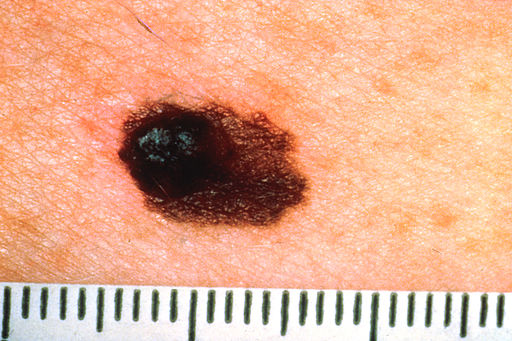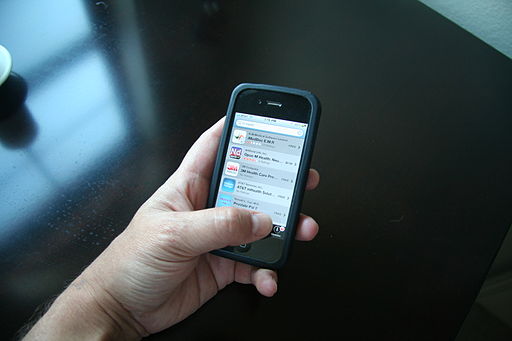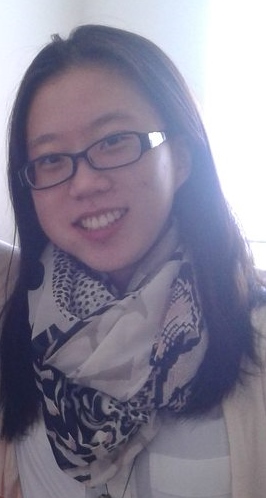The pitfalls of using of smartphone apps to diagnose skin cancer.
On Jan 2, 2014

The advancement of handheld electronic devices has no doubt come far. Nowadays it is common for smartphone users to utilize apps that balance their checkbooks, connect them to their friends, order dinner and even find a date. On top of this, just about anyone can get the chance to play doctor by downloading medical diagnostic applications onto their iPhone or Android. Especially pertinent to Central Skin readers, there have been multiple apps which claim to aid in the diagnosis of melanoma.
As a reminder, melanoma is the deadliest form of skin cancer. According to American Cancer Society, 120,000 people in the U.S. are diagnosed with melanoma every year. In addition, melanoma kills approximately 9,790 people in the U.S. annually. These facts should be chilling reminders of the importance of early recognition and diagnosis of this deadly skin disease. Melanoma diagnostic apps such as Doctor Mole use augmented reality technology to assess, diagnose and store your moles based on automated algorithms. Other applications such as SkinVision allow the user upload a picture of his or her mole. Skin Vision then uses an automated algorithm to provide risk stratification by telling the user whether the mole is suspicious or not suspicious and whether it warrants a visit to a dermatologist. While we do not know that specifics of the algorithms used by these apps, we have an inkling that they use a modification of the ABCDE criteria for diagnosis of melanoma.
Despite our inclination to trust technology with unwavering faith, we should always remember tolook for objective data. We urge our readers to analyze the efficacy of any medical app that they plan to use to make health decisions for themselves. This article will discuss the utilization of smartphone apps to diagnose skin cancer and list both the pluses and minuses of choosing to do so.
Study finds smartphone apps have highly variable results

According to a study conducted by JAMA Dermatology and published in January of 2013, the results provided by cancer-detecting apps tend to vary drastically. In other words, the diagnoses regarding whether skin lesions (i.e. moles) are malignant or benign are not appropriately consistent from app to app. While one app may tell you your lesion requires immediate attention, another app may declare that you do not need to concern yourself with it. This inconsistency becomes a major issue when a possible melanoma patient dismisses his cancerous lesions as non-problematic just by the results of a smartphone app. In fact, of the four applications whose performances were tested in the study, only one had a sensitivity—the ability to correctly identify malignant lesions—of over 90%. Not surprisingly that app was one which included the assessment of a board-certified dermatologist. The other three apps tested, which relied only on algorithms were not so accurate, missing malignant lesions by around 30%. As there is a clear disparity among these applications, consumers should be wary lest an app conveys inaccurate information. As an aside, the JAMA Dermatology article did not reveal the names of the smartphone apps that it analyzed.
Smartphone health diagnostic apps are not regulated
The JAMA study further notes that most health diagnostic apps directed at consumers are not properly regulated. There is little to no input from medical professionals and many people use these applications in lieu of advice from physicians. In order to amend this lack of oversight, the Federal Food and Drug Administration (FDA)executed a plan of action a couple years back. It announced in July of 2011 of plans to supervise smartphone apps which partner with regulated medical devices. Furthermore in June 2012, Congress passed a legislation named the FDA Safety and Innovation Act with the goal of regulating certain smartphone applications. But the question of how exactly the thousands of apps that are out on the market will be regulated is still up in the air. Therefore it is always in the patients’ best interests to seek professional advice from a board certified dermatologist.
Diagnostic apps can raise awareness
This article was not written to deter the usage of mobile health applications altogether. Many skin-care related applications do include a disclaimer stating they should strictly be regarded as educational tools. Yet some people may still be fooled into believing they can avoid a visit to their physician if they monitor their suspicious moles with an app. Instead consumers should use these apps to raise their awareness of skin cancer. It is only when we become more knowledgeable about skin cancer do we stand a better chance of preventing it. The applications can certainly be of great help if used in conjunction with professional input, not simply as standalone advice.
It is indeed tempting for many of us to simply rely on our smartphones to monitor our health. The process is quick, painless, there is virtually no wait time, and most important of all, some of these apps are free of charge. But we should remember that our phone is just that: a phone. It is a handy mechanism when you do not want to bother with a dreaded trip to your doctor. Nonetheless the device will never be able to replace the knowledge and counseling of a qualified dermatologist. So we urge you to visit your dermatologist and get a full body skin exam every one to two years. Only a board-certified dermatologist will be able to tell you with confidence whether that ugly looking mole is potentially malignant.



Interesting article! I guess the point is caveat emptor!